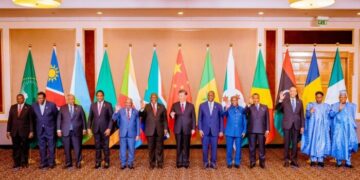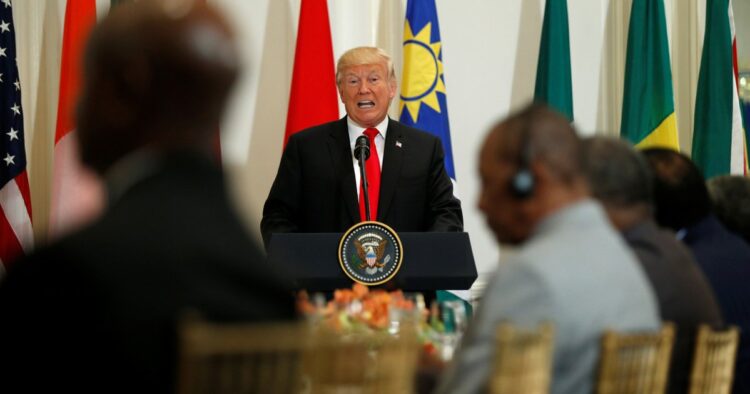On January 20, 2025, Donald Trump was inaugurated as the 47th President of the United States. On his first day in office, he signed over 200 executive orders, signaling a significant shift in U.S. policy.
Several of these directives have implications that extend beyond American borders, potentially affecting nations like Nigeria. While executive orders can be contested in courts or reversed by succeeding administrations, their immediate impacts are noteworthy.
5 Donald Trump Executive Orders That Could Affect Nigerians
Here, we examine 5 President Trump executive that could affect Nigerians:
1. Withdrawal from the World Health Organization (WHO)
One of President Trump’s notable actions was initiating the process to withdraw the United States from the World Health Organization. He criticized the WHO for its handling of the COVID-19 pandemic and alleged undue influence from certain member states.
This decision is significant because the WHO plays a pivotal role in global health initiatives. For countries like Nigeria, which rely on WHO support to combat diseases such as malaria, tuberculosis, and HIV/AIDS, the U.S. withdrawal could lead to reduced funding and resources, potentially hindering ongoing health programs.
2. Reinstatement of the travel ban
President Trump reinstated and expanded the travel ban, restricting entry into the United States from countries with significant terrorist activities. While the original ban included nations like Somalia, Iran, Libya, Syria, and Yemen, the expanded list now encompasses additional countries.
Although Nigeria is not currently on the list, the inclusion of other African nations raises concerns about future implications for Nigerian travelers and immigrants. Such policies could affect Nigerians seeking to visit, study, or work in the U.S., leading to increased scrutiny and potential delays in visa processing.
3. Review and reduction of foreign aid programs
As part of his “America First” agenda, President Trump ordered a comprehensive review of U.S. foreign assistance programs to ensure they align with American interests. This review has led to considerations of reducing foreign aid, which could significantly impact countries like Nigeria that depend on U.S. support for various initiatives, including health, education, and infrastructure development. A reduction in aid could disrupt essential services and slow down progress in critical sectors.
4. Suspension of refugee resettlement programs
The administration has moved to suspend refugee resettlement programs, halting the admission of refugees from several countries, including those in Africa. This policy affects Nigerians seeking asylum or resettlement in the United States due to conflict or persecution.
The suspension leaves many in precarious situations, limiting their options for safety and a better life. Critics argue that this move undermines the U.S.’s long-standing commitment to humanitarian assistance and refugee protection.
5. Reversal of gender and diversity protections
Among the executive orders signed, President Trump revoked certain protections for transgender individuals and redefined gender strictly as male and female. This action has garnered mixed reactions across Africa. Conservative groups have expressed support, viewing it as a reinforcement of traditional values.
In contrast, LGBTQ+ activists and communities have raised concerns about the potential rollback of rights and the emboldening of discriminatory practices. And here in Nigeria, where LGBTQ+ rights are already a contentious issue, this U.S. policy shift could influence local attitudes and policies, potentially leading to increased marginalization of these communities.
President Trump’s executive orders have far-reaching implications that extend to countries like Nigeria. The potential reduction in health funding, changes in immigration policies, adjustments in foreign aid, suspension of refugee programs, and shifts in gender and diversity protections could collectively impact Nigeria’s socio-economic landscape. It remains crucial for Nigerian policymakers and stakeholders to monitor these developments closely and strategize accordingly to mitigate adverse effects.






































Discussion about this post